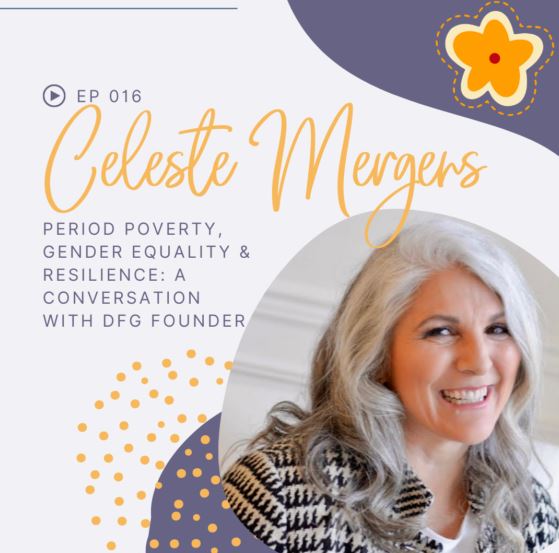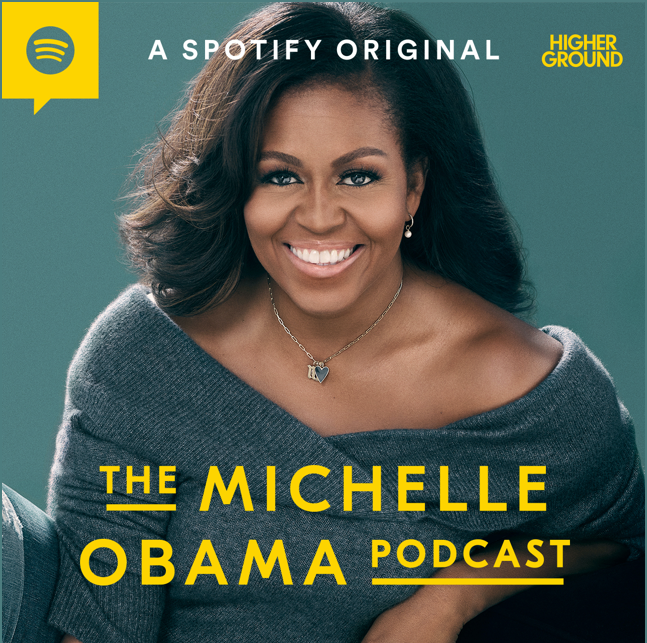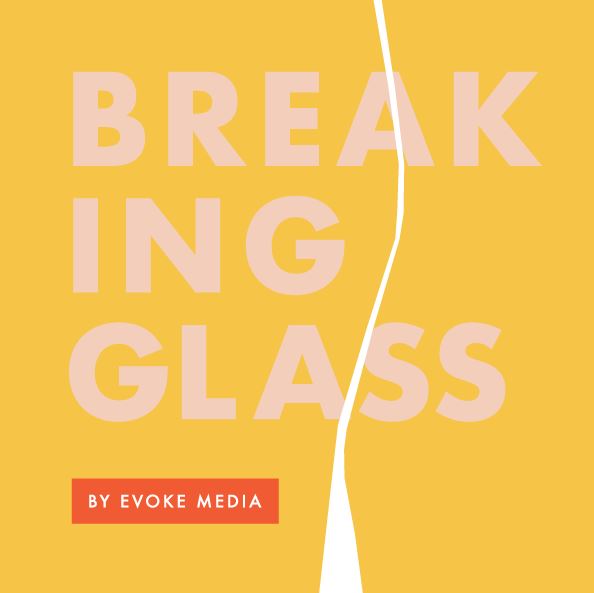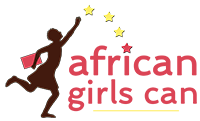It seems that everyone has a podcast! And, if public figures do not host their own podcast, they are often a guest on one. Podcasts are the “in” form of entertainment and learning. And no wonder, because they are free and you can bring them along with you anywhere and multi-task. We can listen and learn and sometimes even laugh out loud while we walk our dog, garden, sew, wash dishes, or do other mundane household chores.
In the girls’ education and empowerment realm, Days for Girls was innovative in being one of the first to host a podcast on the issues encountered in this space. Days for Girls is an NGO focused on menstrual health that was founded in 2008 and is now working in 144 countries. They describe their podcast as a show about “breaking barriers for women and girls around the world.” There are 23 (and counting) episodes, which are generally a half-hour.
Period Poverty, Gender Equality & Resilience
Celeste Mergens, Days for Girls Founder (Episode 16, 55:34)
 Shatter the Stigma – Sustainable Solutions, Conversations, Education
Shatter the Stigma – Sustainable Solutions, Conversations, Education
Celeste begins by describing how she became aware of menstrual inequality and period poverty and then describes the evolution of the DfG reusable pad designs (which are characterized as a cheerful, comfortable product) and programs. All she knew before was disposable products. While working in Kenya, she came to understand that if a person has to choose between food and hygiene products in a scarce setting, she will have to choose food. With this awareness, Celeste looked for a suitable curriculum to teach girls in the developing world about menstruation and their changing bodies. There was none, so she designed one.
Days for Girls was born as a result of a story shared by a group of girls at an orphanage in Kenya. They were sexually exploited in exchange for a single disposable pad. Managing menstruation with dignity is a basic human right and one of the key foundations to reversing poverty and violence. Abuse of women starts with the premise that they are “less than.” How menstruation is addressed within a culture is a clear sign of how women are valued.
And the origin of the name? Females have a period for 3-5 days/month during the years they are fertile. This amounts to 3,000 days, or 8 years. The products and programs offered by DfG give them these “days” back – so they can go back to class, work etc.
The problem of stigma and shame around periods, and lack of access to a sustainable way of dealing with them is worldwide. From Africa to India, to homeless people in developed countries.
“The Power of We”
Days for Girls has mobilized 70,000 people to join their effort since 2008. This army of volunteers has opened up important conversations, advocated, and spent hours hunched over their sewing machines. People simply self-selected to join this movement as DfG invited them to help make this change in the world.
A key aspect of its strategy is to help local leaders own the solution and create income generating opportunities. Non-profit partners in communities are using local supply chains to make the reusable pads. One woman who uses her treadle sewing machine to make pads says “my community knows who I am and listens to me. I now have money for food and school fees for my children.” While entrepreneurship is the focus, Days for Girls is gearing up for larger manufacturing capacity (for instance a plant is being built in Kenya) to meet the demand for the product from governments and organizations.
The future and the mission of Days for Girls is to “Reach Every Girl Everywhere. Period.” DfG aims to shift the attitude about periods to one of celebration. Without periods after all, there would be no people.
Celeste’s own upbringing, in which she experienced poverty, hunger, and homelessness led to her resolve and perseverance. She realized, “I am not these things happening to me. We are not our circumstances. What is possible within us is what matters. We need everyone to show up every day with dignity and hope, no matter their circumstances or gender.”
Celeste is a very inspiring and matter of fact speaker, and we highly recommend this episode if you only have time for one. The podcast series is available on Apple Podcasts, Spotify, and directly on the Days for Girls website.
Other Recommended Podcasts
 1619: This 5-part compelling series gives the history of slavery, which sets the stage for racial inequity in America. Storytelling is powerful!
1619: This 5-part compelling series gives the history of slavery, which sets the stage for racial inequity in America. Storytelling is powerful!
 Michelle Obama: Needs no introduction – it’s always a pleasure to hear her voice. Even though she was First Lady, Michelle has the same concerns as all of us. Episodes 7 and 8, in particular, focus on mentoring (being a mentor and being mentored).
Michelle Obama: Needs no introduction – it’s always a pleasure to hear her voice. Even though she was First Lady, Michelle has the same concerns as all of us. Episodes 7 and 8, in particular, focus on mentoring (being a mentor and being mentored).
 TED Radio Hour: Everyone loves TED talks! These snippets of full-length talks are grouped by theme and there is a link on their website to the complete talk if you are intrigued. Additionally, if you go to ted.com and search “girls education,” THIS is what you will get. Lots!
TED Radio Hour: Everyone loves TED talks! These snippets of full-length talks are grouped by theme and there is a link on their website to the complete talk if you are intrigued. Additionally, if you go to ted.com and search “girls education,” THIS is what you will get. Lots!
 Breaking Glass: Evoke Media brings a new narrative for women. “Despite making up over half of the global population, women control less wealth, own less land, hold fewer public offices, and shoulder more domestic burdens. But in every corner of every country there are individuals with enough gumption to break the system and bend the rules.” The voices of these women are heard in these podcasts.
Breaking Glass: Evoke Media brings a new narrative for women. “Despite making up over half of the global population, women control less wealth, own less land, hold fewer public offices, and shoulder more domestic burdens. But in every corner of every country there are individuals with enough gumption to break the system and bend the rules.” The voices of these women are heard in these podcasts.
*Not to be confused with Melinda French Gates’ online platform by the same name, Evoke, which publishes stories each month around a theme. Check out International Day of the Girl, 2020.

